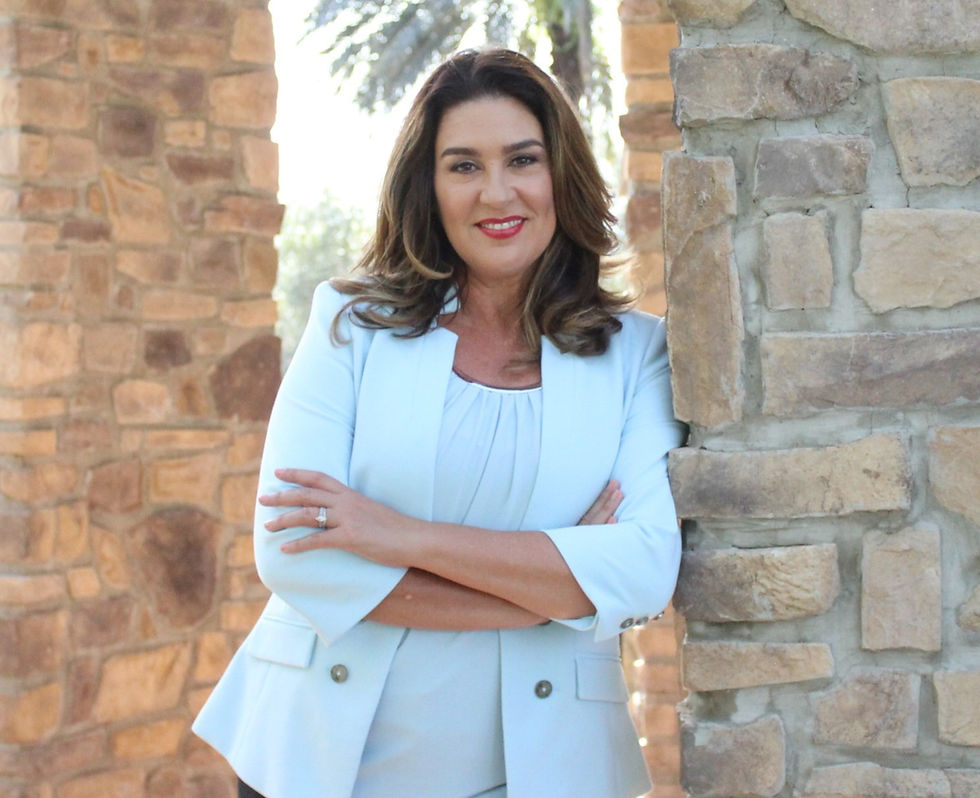Why do some CEOs lack Emotional Intelligence?
- Dr. Cristina DiPietropolo

- Aug 19, 2021
- 4 min read
Emotional Intelligence (EI) is the power to control one's emotions, perceive emotions in others, adapt to change, and manage adversity.[1] LaRae Quy (2017), a former FBI undercover and counterintelligence agent, utilized EI during her twenty-four years, exposing foreign spies and recruiting them to work for the United States government. She equates the ability to effectively use EI during interviews as part of her success and discusses emotional competency as a significant component of mental toughness.[2] She describes the need for business leaders to develop mental toughness to effectively manage emotions and behaviors when faced with intense adversity and pressure.
One interesting topic in her article is the issue of EI diminishing as executives move up the corporate ladder, with CEOs having the lowest EI scores. This seems difficult to grasp when we consider that most top executives are knowledgeable, assertive, and confident. However, three areas may contribute to the decline in EI at the executive level.
Suffering from an inflated ego
The issue of ego, specifically how it increases while we climb the ladder of success, could be considered a key factor. While there is nothing wrong with being proud of your achievements, it can harm the executive if ego prevails. Ego traps talented professionals. How so? Because the only opinion that matters to the executive is their own. This type of pride creates blind spots in the lives of professionals who are unwilling to listen and learn from others. You must recognize that an inflated ego will prevent you from acknowledging mistakes, which can hinder your professional growth.[3] It also impacts your ability to learn from those who have a diverse perspective or different previous experiences. To be successful, you need to be able to evaluate yourself honestly and identify your strengths, as well as your weaknesses. One component of EI is the ability for the leader to place ego aside to recognize their shortcomings to effect change personally and professionally. This requires humility, a trait that is often elusive to those with inflated egos.
Need for self-awareness
Emotions must be managed in a working environment because they have the capability of spreading quickly among employees. If negative emotions are beginning to invade employees' thoughts and actions, it can create a domino effect that could negatively impact morale throughout the organization. CEOs are constantly being looked upon to have all the answers because their title and authority within the organization place them in this position. According to Bill George, a professor of leadership at Harvard Business School, self-awareness is the foundation of Emotional Intelligence.[4] An executive who displays a high level of self-awareness can successfully navigate stressful situations because they are calm, process information, reason, form ideas, and resolve problems without being influenced, and do not allow external pressures to interfere with their cognitive thinking.
Lack of constructive feedback
Many top executives have few opportunities to receive honest and constructive feedback.[2] Subordinates to the CEO are sometimes hesitant to give this type of feedback for fear of retaliation. Influential leaders who possess EI are aware of their limitations and focus on building a strong team to complement their strengths and weaknesses. An effective leader needs to develop strong relationships with their direct reports and create a safe environment that allows employees to speak freely, without the fear of retribution by management. CEOs should ask their direct reports to offer advice on how they could improve effectiveness. However, the executive must invest the necessary time and energy into developing a strong relationship with employees for this to be successful. The most important outcome of this type of discussion is for the executive to listen with open ears and a closed mouth.[2] Part of being an effective leader is the ability to reflect. Proper reflection will enable leaders to make attitude adjustments in their thinking and behavior and implement appropriate changes.
Final Thoughts
We hope you enjoyed reading this article! If you are in a CEO or senior management position and want to improve your EI skills, our 4-module Emotional Intelligence Master Class for practitioners contains all the materials you'll need to become an emotional intelligence expert, strengthen your leadership skills, and cultivate emotional connections with your employees. Email us at info@leaderessentialsgroup.com for more information.
People also read
https://www.leaderessentialsgroup.com/post/leaders-how-much-have-you-invested-in-self-awareness
https://www.leaderessentialsgroup.com/post/socially-aware-leader
https://www.leaderessentialsgroup.com/post/socially-aware-leader-part-2
https://www.leaderessentialsgroup.com/post/emotional-intelligence-self-management

Dr. Cristina Rosario DiPietropolo is the Founder and Chief Executive Officer at Leader Essentials Group, with extensive experience across multiple industries and highly skilled in the areas of strategic planning, organizational behavior, human resource management, change management, leadership, and digital marketing. Over ten years of teaching experience as a university professor of management, with a special focus on leadership in entrepreneurship, organizational behavior, and international management.
_________________________________________________________________________ [1] Nelson, D. L., & Quick, J. C. (2014). Organizational Behavior (4th ed.). Cengage. [2] Quy, L. (2017). Why most CEOs lack emotional intelligence. Retrieved November 7, 2017, from https://www.smartbrief.com/original/2017/09/why-most-ceos-lack-emotional-intelligence [3] Hougaard, R., & Carter, J. (2018). Ego is the enemy of good leadership. Harvard Business Review. [4] McKee, A., Boyatzis, R. E., Johnston, F., & Johnston, F. (2008). Becoming a resonant leader: Develop your emotional intelligence, renew your relationships, sustain your effectiveness. Harvard Business Press.
.png)



コメント